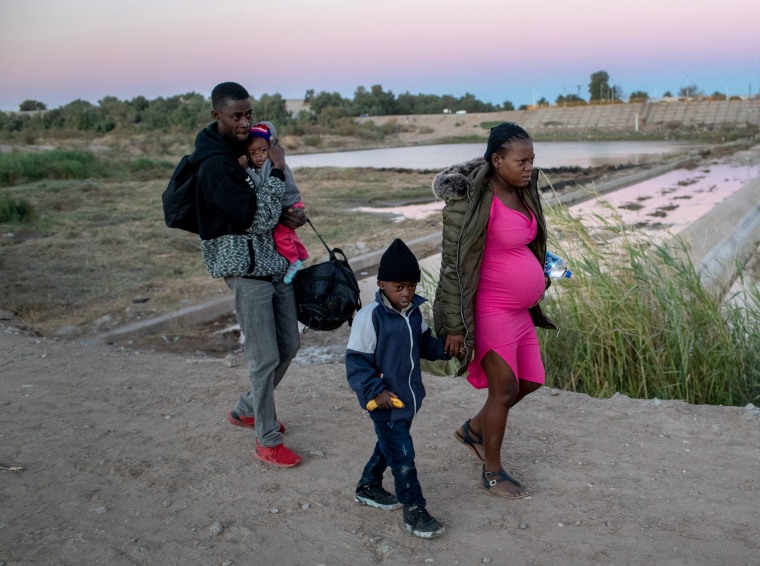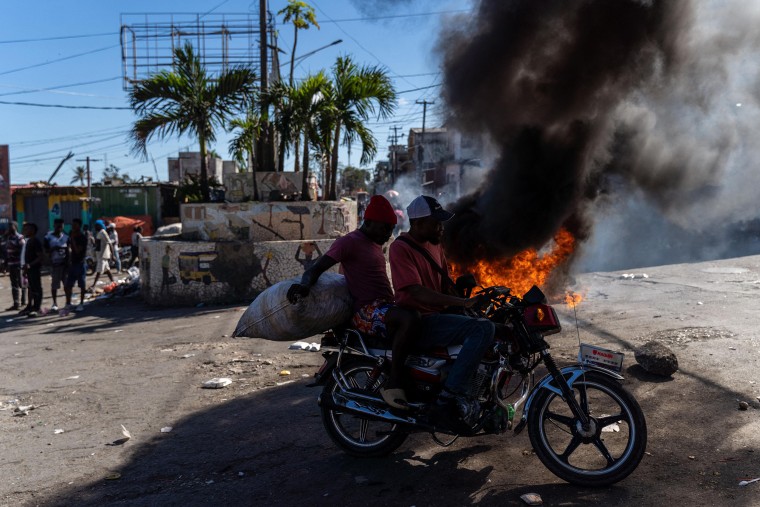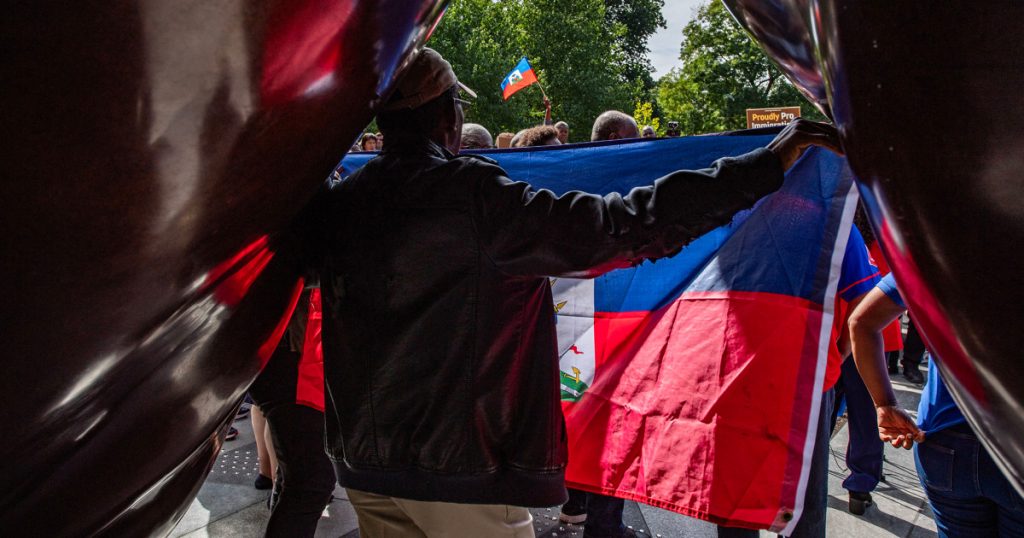Thousands of people who fled Haiti could be forced back to a country dealing with vast gang violence and political turmoil if a judge clears the runway for the Trump administration to end a Biden-era immigration program.
Kevinson Jean, 28, said receiving a letter from U.S. Citizenship and Immigration Services informing him that he needed to self-deport was terrifying. “I didn’t know what to do. It felt like a nightmare,” he said.
In 2023, the Jeans were granted entry under Cuba, Haiti, Nicaragua, Venezuela (CHNV) Humanitarian Sponsorship Program, which provided temporary legal status for more than 500,000 people to stay in the U.S. An executive order from President Donald Trump revoking the program was to go into effect April 24, with the administration describing the program as a “broad abuse” of the immigration parole system. A judge temporarily blocked Trump’s order earlier this month. The Trump administration appealed the ruling, and the First Circuit court could rule on the program’s status imminently.
The Jeans’ home country, however, is in the middle of a security and humanitarian crisis. Gangs now control most of Port-au-Prince and violence displaced more than 60,000 people in February alone, according to the United Nations.
Trump told NBC News on April 21, that if the Jeans came to the U.S. “legally, then they’re going to be in good shape” to remain. A statement to NBC News from the Department of Homeland Security described the CHNV program as “an unlawful scheme.”
The couple’s journey to the U.S. began in 2019 when Jean befriended Kimberly Snelgrooes, the founder of the nonprofit Christian ministry Hills of His Grace, during a short-term mission trip to Haiti. He began working for the organization, overseeing ministry activities, handling funds and supporting community outreach and humanitarian aid efforts.
The job, though, put a target on his back. Jean said he was held at gunpoint in Port-au-Prince by people demanding cash he had collected for Hills of His Grace’s operations in 2021.
Overall, Jean described the security situation in Haiti as chaotic, citing incidents of gang violence and armed robberies, leaving bodies in the streets. Drone strikes intended to target gangs sometimes hit civilians.
Pierre Esperance, a human rights activist in Haiti, said the country has always had problems, but the current levels of violence are unprecedented.
“Gangs are occupying 95% of the capital,” Esperance said. “They have guns; they have a large presence. They attack whenever they want. They set fire to whatever they want. The police have been weakened, and the government has collapsed.”
The violence led Snelgrooes to help Jean and his wife, Sherlie, apply for the CHNV Humanitarian Sponsorship Program to enter the U.S. The couple made their way to Panhandle, Texas, where the community has rallied around them.

Joshua Light, the pastor of First Baptist Church Panhandle, met Jean in 2020 during a mission trip to Haiti, where Jean worked as a translator. The couple’s kindness left a lasting impression on the pastor.
His church also helped bring the Jeans to the U.S. under humanitarian parole. Now, Light and the congregation are concerned about the possibility of their deportation.
“It’s heartbreaking. They’ve contributed positively to society, and they want to do everything right,” Light said. “To target people who have broken no laws for political points is unfair.”
Panhandle is in Carson County, where 90% of voters chose Trump in the 2024 election. Despite the town’s conservative leanings, Light has been vocal in his support for the couple.
“I’m a Republican, but I understand that Kevinson and Sherlie are good people who deserve to stay,” he said, emphasizing that compassion should transcend political boundaries.
Without work authorization or a green card, the couple lives in constant fear of deportation. “Going back to Haiti is like a death sentence,” Jean said, citing the threats he faced due to his former job. “I’ll be a target the moment I land.”
The ongoing instability has made flying to Port-au-Prince, the capital, nearly impossible. “It’s very dangerous and very expensive to return,” Jean said. “How can we self-deport when we don’t even have the means to get back?”
The Federal Aviation Administration suspended U.S. airline flights to Haiti in late 2024 after gangs shot at multiple planes near the airport, including a Spirit Airlines flight. JetBlue and American Airlines also reported their planes were hit by gunfire. Humanitarian flights are limited, and the United Nations has redirected some aid flights to other airports, making it nearly impossible for most people to return to Haiti.

The couple has also expressed concerns about being sent to a third country like El Salvador. “We don’t know the language or culture. It would be worse than going back to Haiti,” Jean added.
In a statement to NBC News, the Department of Homeland Security said that Haitians in the U.S. who have been ordered to return can go to the northern part of the country, instead of Port-au-Prince, as well as other countries that have agreed to take Haitian migrants.
Light said he worries about the couple’s safety, if forced to return to Haiti. “They’ve worked so hard to build a life here,” he said, “and for them to be sent back is heartbreaking.”
The Jeans say the thing they want is simple. “We just want to stay safe,” Jean said. “We don’t want to go back to a war zone.”


